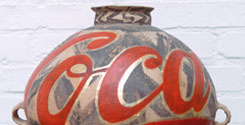
Myron Siu was inspired by his childhood pediatrician—“her selflessness and dedication to her patients motivated me,” he says. Photo: Melody Ko
Doctor in the House
Myron Siu practices medicine the old-fashioned way—by calling on his Chinatown patients at home
By Bruce Morgan
If you’re an elderly patient living in Boston’s Chinatown, this is the slight, soft-spoken young man with the understanding manner that you want to come knocking at your door. Last year, Dr. Myron Siu, assistant professor of medicine at Tufts since 2003, proposed making house calls to his boss at Tufts–New England Medical Center. “I thought it was such a great idea the minute I heard about it,” says Dr. David Fairchild, chief of medicine. In addition to his clinic work, Siu now has 18 patients whom he visits regularly in their homes, lightly bridging a cultural and medical divide.
Siu, 32, grew up in San Francisco, where his mother taught preschool and his father worked as a custodian. He graduated from the University of California-San Diego School of Medicine in 2000, before venturing east to complete his residency at Beth Israel Deaconess Medical Center.
How did you get interested in medicine?
Much of my inspiration came from my childhood pediatrician. I was really inspired by her commitment to the community and to her patients. She would see patients for a reduced fee, or sometimes for free. Her selflessness and dedication to her patients motivated me.
What prompted you to start the home-care program?
Many of my elderly patients were having a difficult time coming to clinic to see me. I wanted to initiate home care to make it easier for them to access care.
Do you speak their language?
I speak English and conversational Cantonese, which a majority of the Asian population here in Boston speaks. In Chinese, there are several dialects. The main dialect is Mandarin, which approximately 80 percent of Chinese people speak. The southern provinces of China speak Cantonese.
What are some benefits of seeing patients at home?
By going to their apartments, I have a better insight into their whole social and family dynamic situation. For a patient coming into clinic, I have to take what they tell me on faith. If they tell me that a family member helps them, I have no way to verify that.
Do attitudes about Western medicine among Chinese-Americans hinder your work?
Yes. There is a cultural belief among Asian patients that Western medicine is “too strong.” Some Chinese patients believe Western medicine is very aggressive. Many Chinese here in the United States are immigrants. They don’t understand the concept of preventive health.
Many of them believe in Eastern medicine—acupuncture, herbalists and so forth. Often they will seek those methods first, before seeing me.
Do you feel you’re better at building trust because of who you are?
I believe so. Many Asian patients do feel a connection with me, and they feel I know their culture better than a non-Asian physician. This helps me with establishing their trust. Even so, often there’s a great deal of anxiety. Just yesterday, I saw a 95-year-old woman patient for the first time. Her daughter had arranged the visit. When I arrived at the apartment, I heard the patient screaming in Chinese in the background, “Don’t let him in! I don’t want to see him!” However, after speaking with her for an hour, she began to trust me and wanted me to come back and see her again.
Bruce Morgan can be reached at bruce.morgan@tufts.edu.



